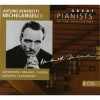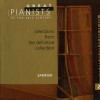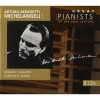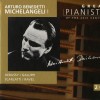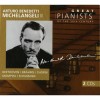| Voice/Instrument: | Pianoforte |
Biography
Born in Brescia, Italy, he began music lessons at the age of three, initially with the violin, but quickly switched to the piano. At ten he entered the Milan Conservatory. In 1938, at age eighteen, he began his international career by entering the Ysaÿe International Festival in Brussels, Belgium, where he was placed seventh (a brief account of this competition, at which Emil Gilels took first prize, is given by Arthur Rubinstein, who was one of the judges. According to Rubinstein, Michelangeli gave "an unsatisfactory performance, but already showed his impeccable technique"). A year later he earned first prize in the Geneva International Competition where he was acclaimed as "a new Liszt" by pianist Alfred Cortot, a member of the judging panel, which was presided over by Ignacy Jan Paderewski.
On the other hand, the Romanian conductor Sergiu Celibidache always saw in Michelangeli a colleague, and not merely another competent pianist: “Michelangeli makes colors; he is a conductor." The teacher and commentator David Dubal argued that he was best in the earlier works of Beethoven and seemed insecure in Chopin, but that he was "demonic" in such works as the Bach-Busoni Chaconne and the Brahms Paganini Variations.
His repertoire was strikingly small for a concert pianist of such stature. Owing to his obsessive perfectionism relatively few recordings were officially released during Michelangeli's lifetime, but these are augmented by numerous bootleg recordings of live performances. Discographical highlights include the (authorized) live performances in London of Ravel's Gaspard de la nuit, Chopin's Sonata No. 2, Schumann's Carnaval, Op. 9 and Faschingsschwank aus Wien, Op. 26 as well as various recordings of Beethoven's Piano Concerto No. 5, Liszt's Piano Concerto No. 1 and Totentanz, and the piano concertos of Robert Schumann and Edvard Grieg. In addition, his playing of Ravel's Piano Concerto in G and Gaspard de la nuit set standards for those works. His reading of Rachmaninoff's Piano Concerto No. 4 is comparable to that of Rachmaninoff himself. His Debussy series for DG is something of a benchmark, even if it is sometimes accused of being a little unatmospheric ("swimming in cool water," in Dubal's words). He is also credited with the rediscovery of some works of Catalan composer Federico Mompou.
As a composer, Michelangeli wrote 19 Folksongs a cappella for the SAT men's chorus from Trent (Italy). As a teacher, his pupils included such world-class artists as Martha Argerich, Ivan Moravec, and Maurizio Pollini.
On September 20, 1943 Michelangeli married Giuliana Guidetti, whom he had met in Brescia, and who had later been a pupil of his. She was a valued counselor and secretary to her husband. She lived quietly, sharing time together at their villa in Bornato, near Brescia, or in Bolzano or Arezzo, and almost never appeared in public together with her husband, so that nearly nobody knew that Arturo Benedetti Michelangeli was married.
From 1970 on, his secretary Marie-José Gros-Dubois, twenty years younger than him, was faithfully near his side.
Michelangeli reputedly did not enjoy giving concerts. His wife, Giuliana, was his agent. She organized concerts and dates for him, and also presided over his financial affairs. In a recent interview, she remembered that her husband could not believe that his concerts were worth so much money. After a concert, she reported that he gloomily said: "You see, so much applause, so much public. Then, in half an hour, you feel alone more than before."
Michelangeli was a great connoisseur of the mechanics of the piano, and he insisted that his concert instruments be in perfect condition. His last concert took place on 7 May 1993 in Hamburg, Germany. After an extended illness he died in Lugano, Switzerland.
Compositions
Discography
Composers' compositions
Sergei Vasilievich Rachmaninoff
Concerto No.4 in G minor (Michelangeli)Symphony / Symphonic music
Op.40





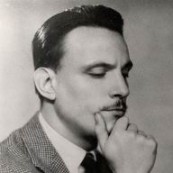
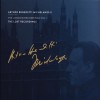
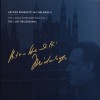




















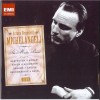
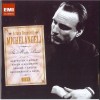
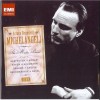
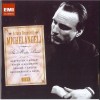
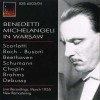
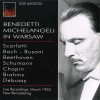
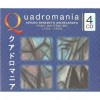
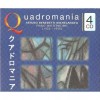
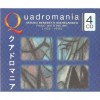
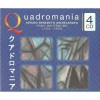

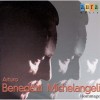
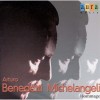
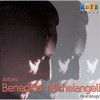
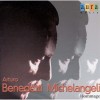
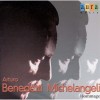
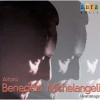
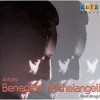
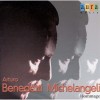
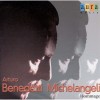
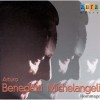
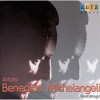
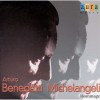
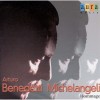
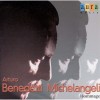
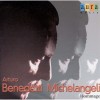
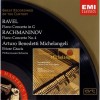
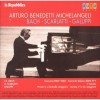
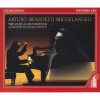
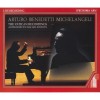
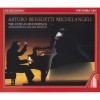
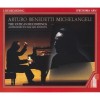
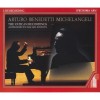
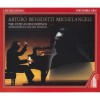
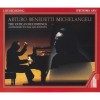
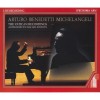






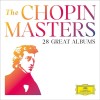

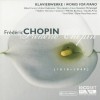

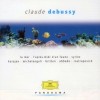
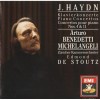
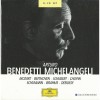
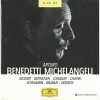
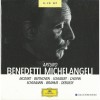
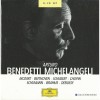
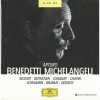
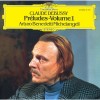
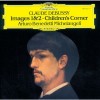
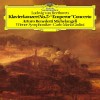
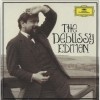
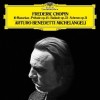
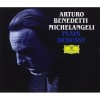
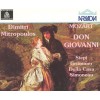
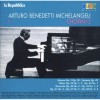
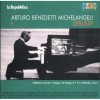
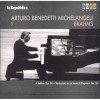
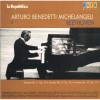
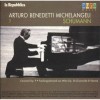
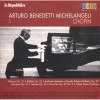
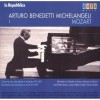
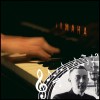
![Steinway Legends - Arturo Benedetti Michelangeli [2 CD]](http://static.classicalm.com/repository/collection-cover/small/231-img1316813313531382.jpg)
